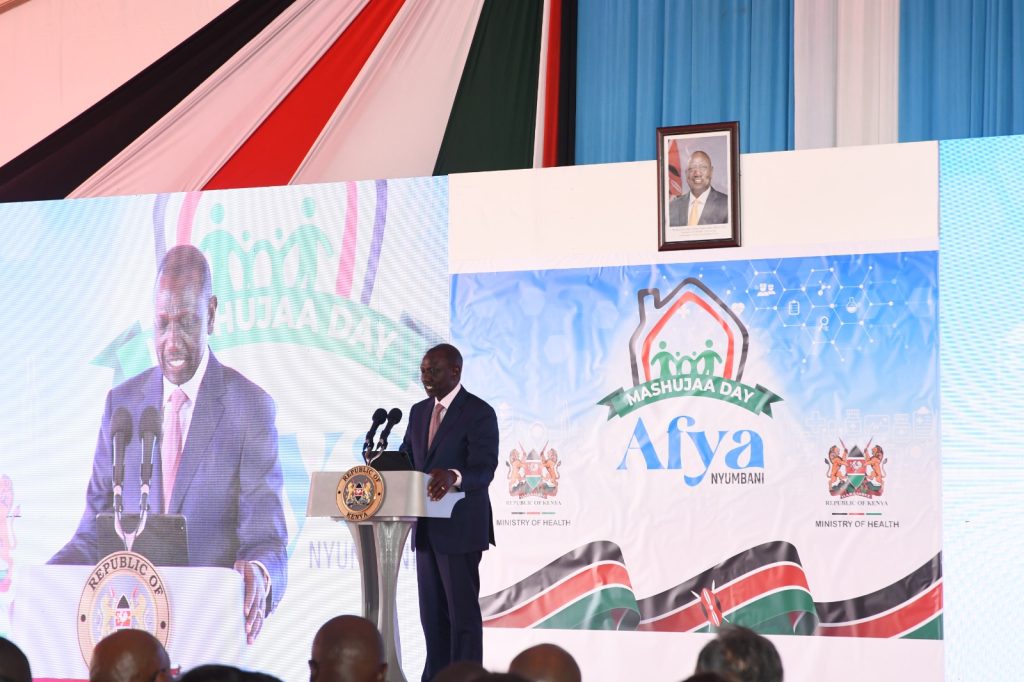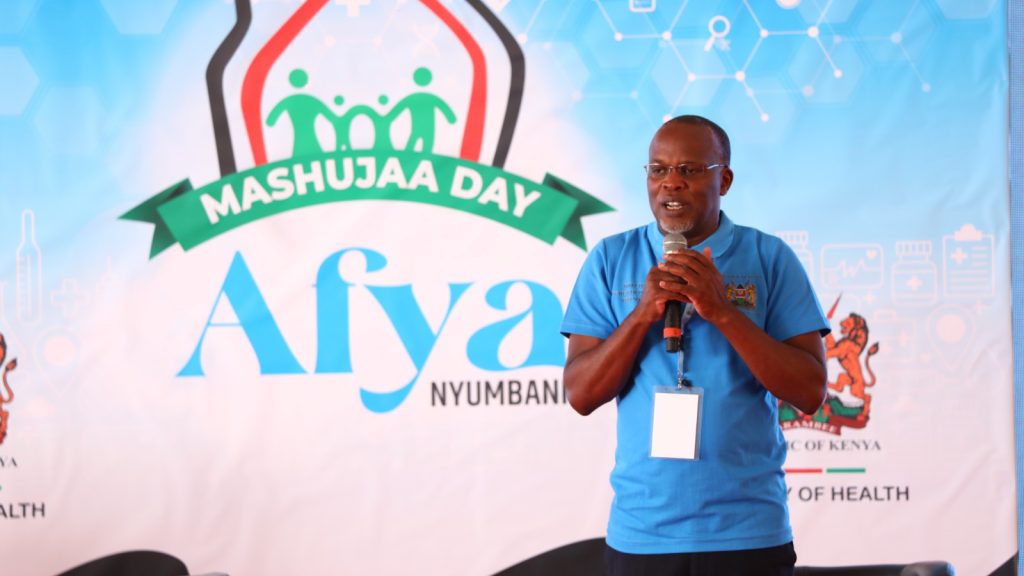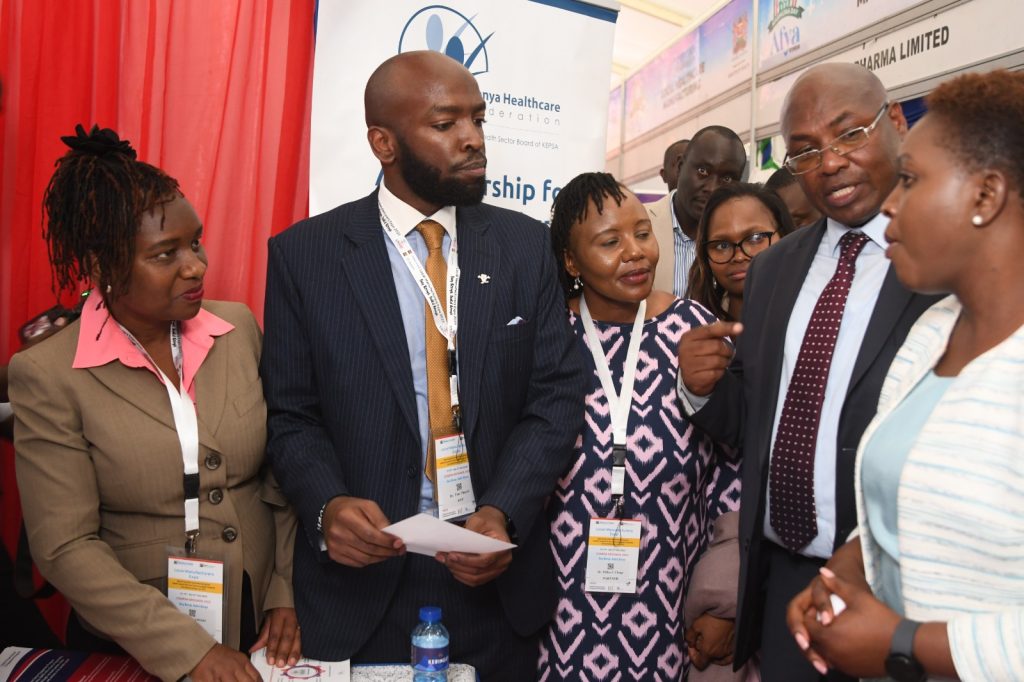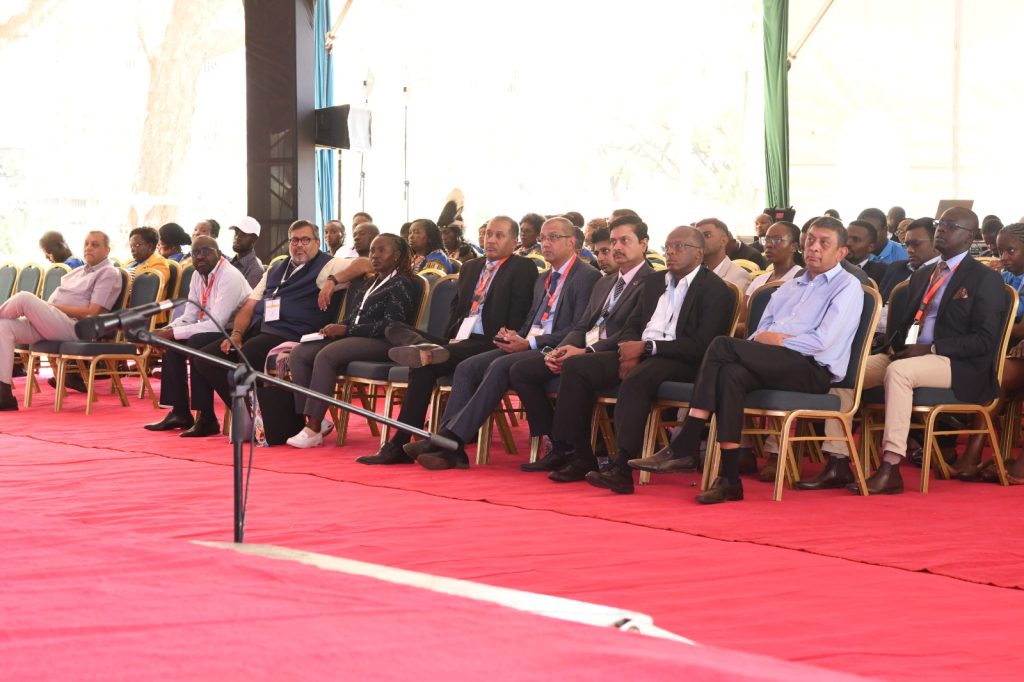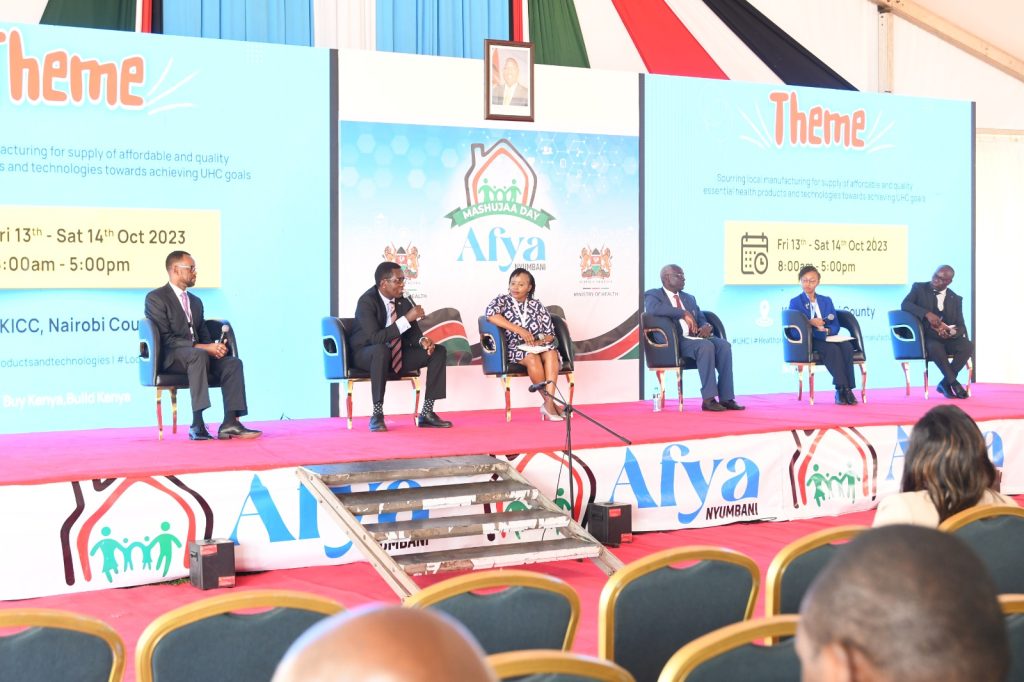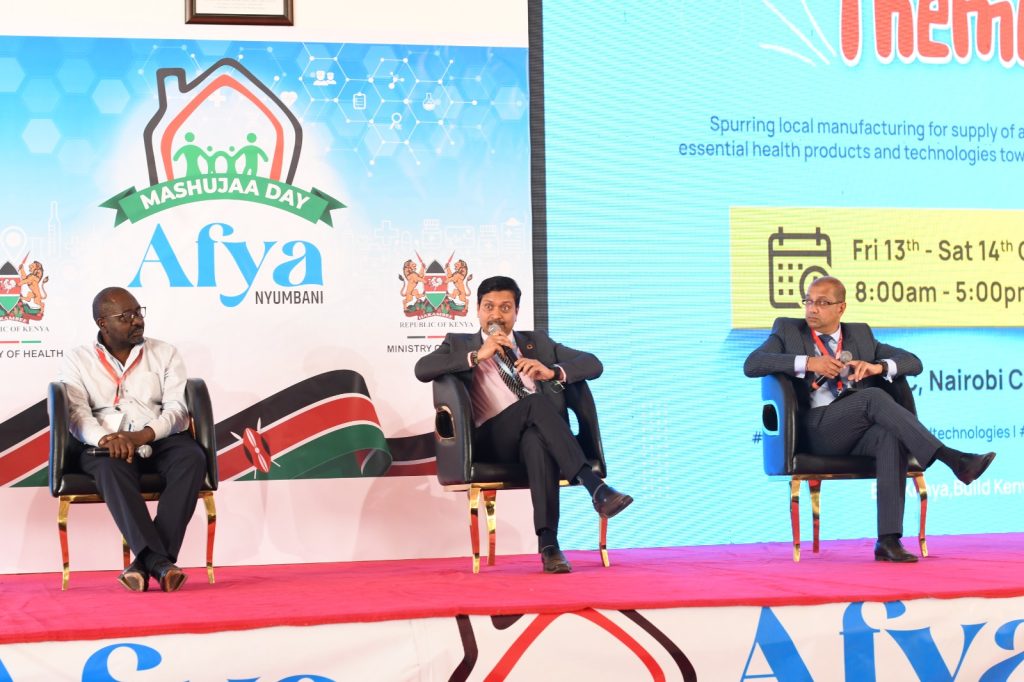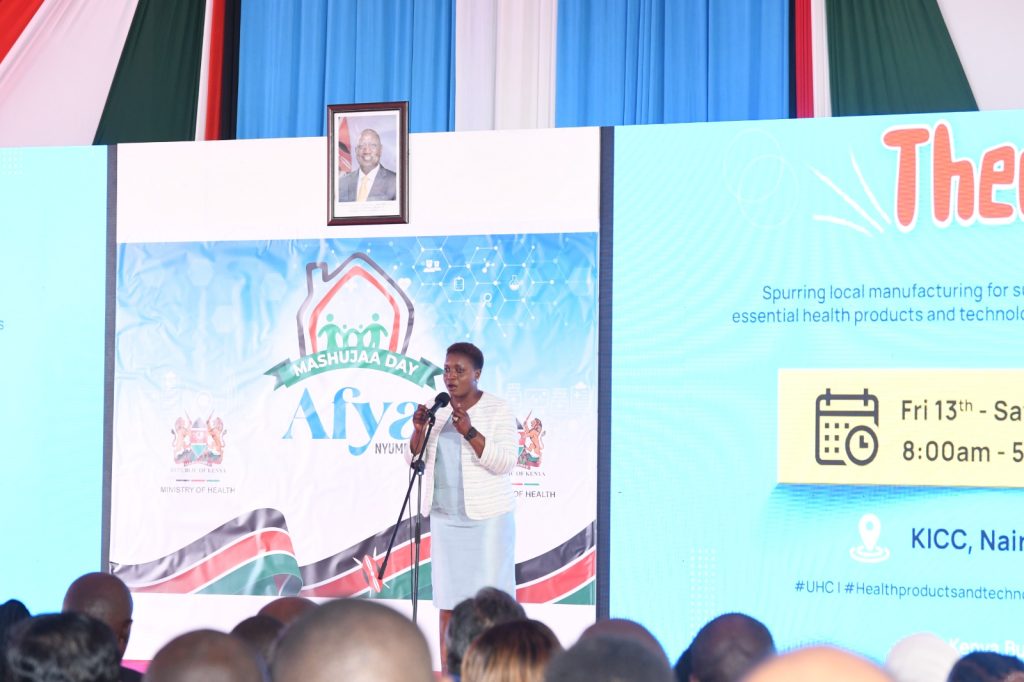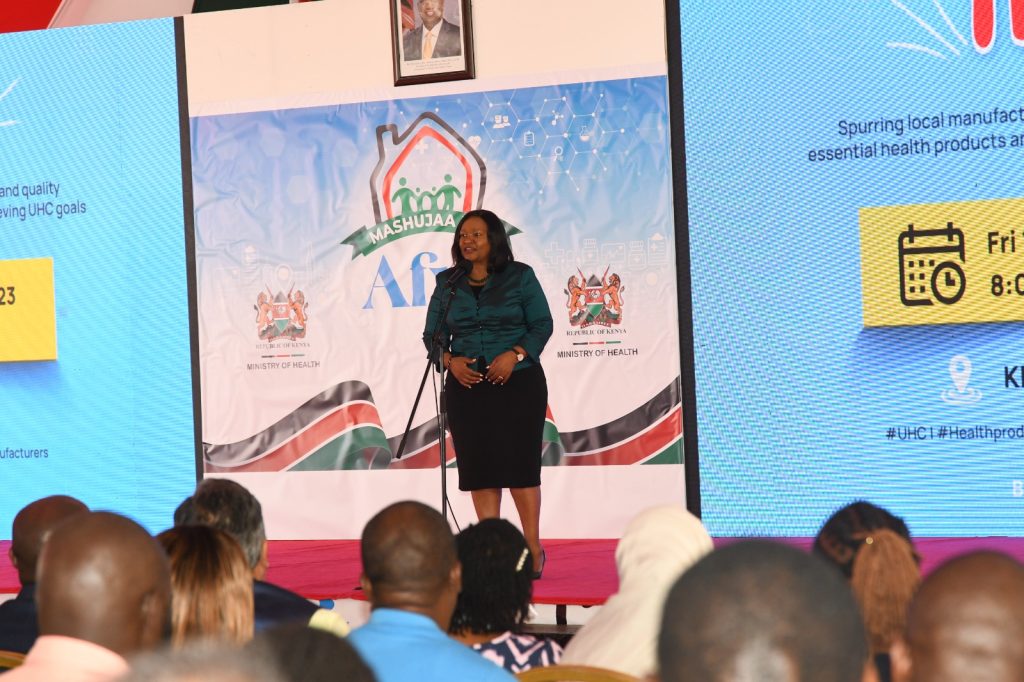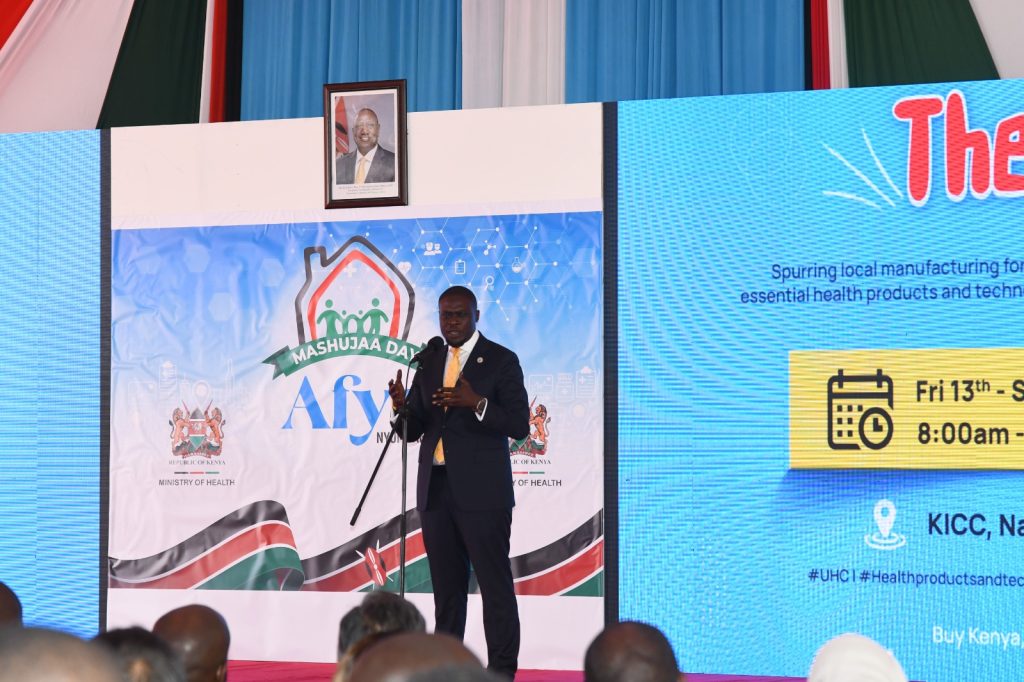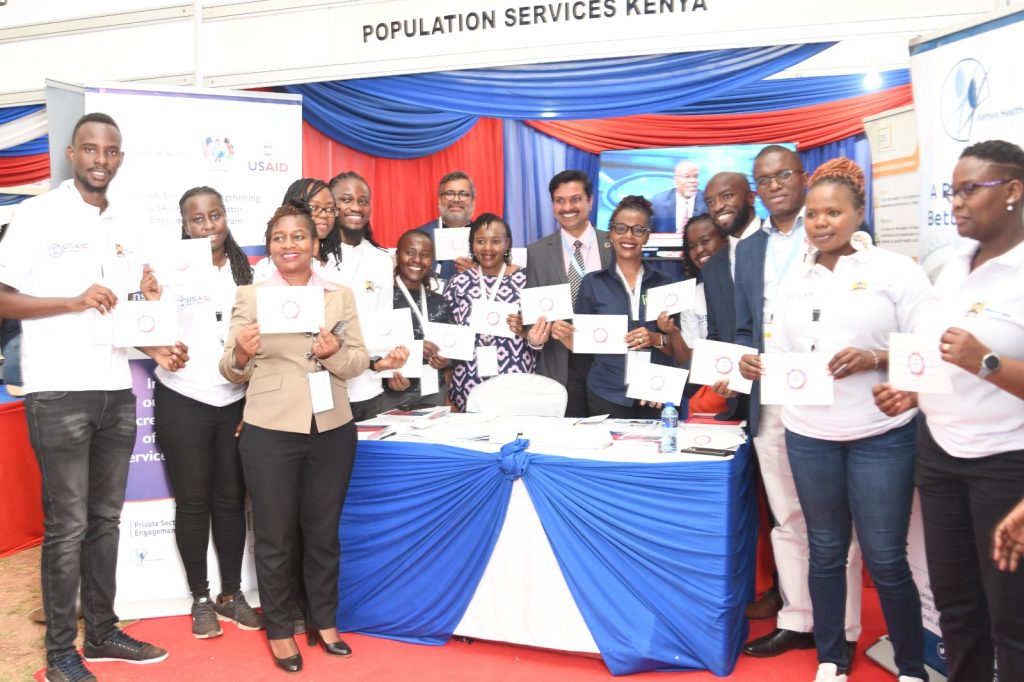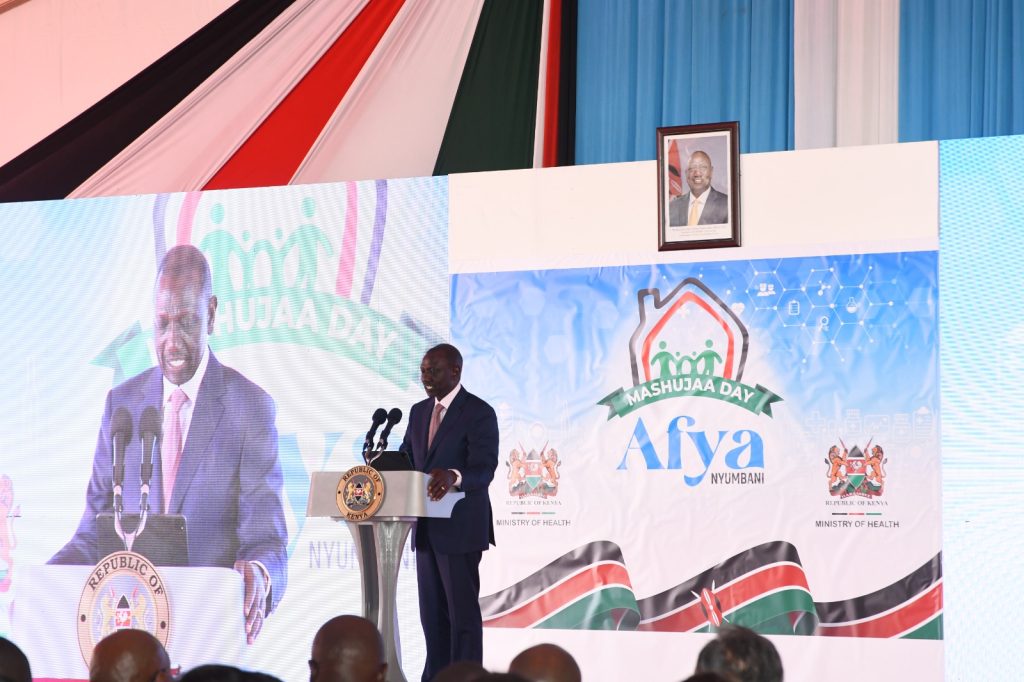The Local Manufacturing Exhibition at the Kenyatta International Convention Centre began with high-profile panel discussions. Distinguished attendees included H.E. Dr. William Ruto, CGH, Trade CS Rebecca Miano, Health CS Nakhumicha Wafula, Nairobi Governor Johnson Sakaja, Principal Secretaries Harry Kimutai and Muthoni and Health Director General Dr. Patrick Amoth,
In his keynote address, President Ruto urged local manufacturers to produce affordably, hire locally and pay taxes.
The Ministry of Health’s Directorate of Health Products and Technologies (DHPT) organized the Local Manufacturing Expo that was held at the KICC in Nairobi. The expo aimed to promote and support local pharmaceutical manufacturing in Kenya through various activities.
The planning involved key stakeholders including USAID, DHPT, MoH, and Kenya Healthcare Federation. It included consultation meetings, developing a communication strategy and social media messaging, organizing a webinar for local manufacturers, and holding a consultative meeting with manufacturers and government representatives. USAID and the USAID Private Sector Engagement (PSE) program also procured banners, flyers, and materials to enhance the expo’s visibility.
The exhibition booths showcased locally-made medicines, health products and medical technologies. Visitors learned how the Ministry of Health was collaborating with partners to expand access to affordable, quality healthcare for all Kenyans, in line with Universal Health Coverage efforts.
Booth #48 hosted the USAID Private Sector Engagement Program and provided a forum to discuss strengthening local manufacturing of essential health products and technologies to support Universal Health Coverage goals.
The expo featured insightful panel discussions on topics like biotherapeutics, medical devices, and pharmaceutical manufacturing challenges. The discussions emphasized needs like improving quality, safety, capacity building, and policy support for the sector. President Ruto expressed his government’s commitment to support local manufacturing through incentives, infrastructure development, procurement initiatives, regional expansion support, and aims to have 50% of medicines produced locally by 2026.
The event saw an impressive turnout of over 1,000 attendees that included partners, government representatives, and exhibitors. A social media campaign reached around 130,000 people across platforms. The PSE program’s booth engaged over 60 attendees to gain valuable insights into the local manufacturing landscape and demands like the Kenyan Essential Diagnostics List and Kenya Essential Medical List.
Overall, the expo provided a platform for critical dialogue between stakeholders and outlined government initiatives and commitments to strengthen local pharmaceutical manufacturing in Kenya.
